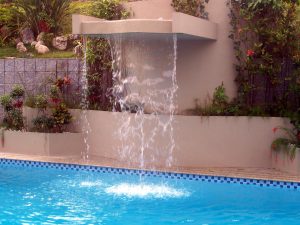Covid concerns and social-distancing restrictions have safety advocates worried about swimming pool accidents this summer as families and friends gather to make the best of this challenging time.
Our Fort Myers injury lawyers urge families to take proactive measures to keep swimmers safe at private pools this summer, especially in cases where toddlers or young children will have access to those irresistible backyard waters. 
For those venturing out to public pools and swimming facilities, the Centers for Disease Control and Prevention issued guidelines in time for Memorial Day weekend. While the swimming might be safe, it’s the interaction with others that carries the risk. Recommendations include wearing a mask until getting into the water, staying six feet apart, covering coughs, frequent hand washing and not sharing goggles or other equipment.
“There is no evidence that the virus that causes COVID-19 can be spread to people through the water in pools, hot tubs, spas, or water play areas,” the CDC said on its website. “Proper operation and maintenance (including disinfection with chlorine and bromine) of these facilities should inactivate the virus in the water.”
Injuries at Private Swimming Pools in SWFL
But it’s private swimming pools that carry the most risk.
New data from the Consumer Products Safety Commission reveals residential swimming pools, such as at a child’s home, a family or friend’s house or a neighbor’s residence, made up 71 percent of the reported fatal drowning incidents.
“Our latest report confirms that most child drownings take place at home during the summer months. I urge everyone to take critical safety steps to reverse the upward trend in fatal child drownings,” said CPSC Acting Chairman Robert Adler.
Florida reports more drownings than any other state. Children under the age of 5 are most at risk. Additionally, an average of 18 children a day are transported to the hospital following near-drowning incidents. Near drowning can have significant long-term impacts, including brain injury.
- Pool owners must make sure their pools are in compliance with the Florida Residential Swimming Pool Act (F.S. 515.21), which requires most pools to be covered or fully enclosed with self-locking gates and door and window alarms.
- Learn to swim and teach your children how to swim.
- Learn CPR.
- Never leave a child unsupervised with access to the pool area.
- Teach children proper swimming pool safety.
- Stay away from pool drains and keep children away from other pool equipment.
Several child drownings occur in Southwest Florida each summer. By doing your part, you can help prevent a tragedy and reduce the chances that you will be blamed for a drowning or near-drowning incident. Those who are injured in private or commercial swimming pool accidents are often entitled to make a claim against a homeowner’s insurance company or a commercial liability policy.
Our experienced pool injury lawyers know these tragedies are almost always preventable. Pool owners have an obligation to act in a responsible manner. When owner negligence results in injury, victims are entitled to compensation under the law.
If you or a loved one is injured, call Associates and Bruce L. Scheiner, Attorneys for the Injured, at 1-800-646-1210.
 Florida Injury Lawyer Blog
Florida Injury Lawyer Blog





